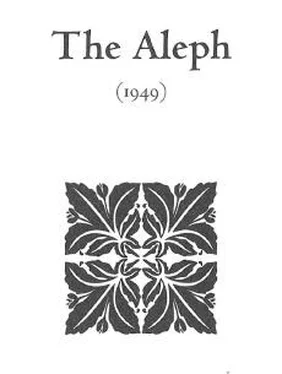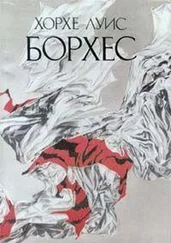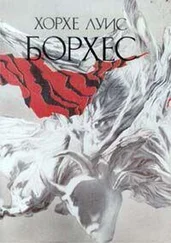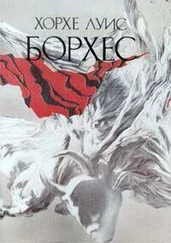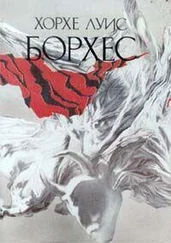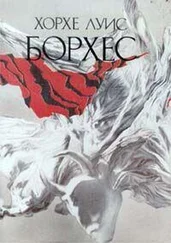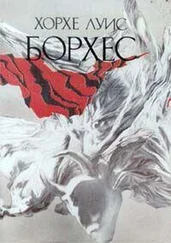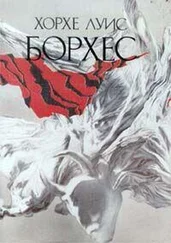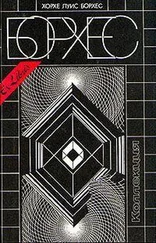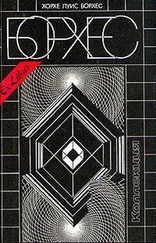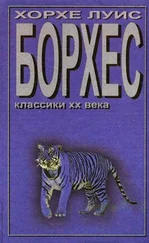Хорхе Борхес - Collected Fictions
Здесь есть возможность читать онлайн «Хорхе Борхес - Collected Fictions» весь текст электронной книги совершенно бесплатно (целиком полную версию без сокращений). В некоторых случаях можно слушать аудио, скачать через торрент в формате fb2 и присутствует краткое содержание. Год выпуска: 1999, ISBN: 1999, Издательство: Penguin (UK), Жанр: Старинная литература, на английском языке. Описание произведения, (предисловие) а так же отзывы посетителей доступны на портале библиотеки ЛибКат.
- Название:Collected Fictions
- Автор:
- Издательство:Penguin (UK)
- Жанр:
- Год:1999
- ISBN:9780140286809
- Рейтинг книги:5 / 5. Голосов: 1
-
Избранное:Добавить в избранное
- Отзывы:
-
Ваша оценка:
- 100
- 1
- 2
- 3
- 4
- 5
Collected Fictions: краткое содержание, описание и аннотация
Предлагаем к чтению аннотацию, описание, краткое содержание или предисловие (зависит от того, что написал сам автор книги «Collected Fictions»). Если вы не нашли необходимую информацию о книге — напишите в комментариях, мы постараемся отыскать её.
Collected Fictions — читать онлайн бесплатно полную книгу (весь текст) целиком
Ниже представлен текст книги, разбитый по страницам. Система сохранения места последней прочитанной страницы, позволяет с удобством читать онлайн бесплатно книгу «Collected Fictions», без необходимости каждый раз заново искать на чём Вы остановились. Поставьте закладку, и сможете в любой момент перейти на страницу, на которой закончили чтение.
Интервал:
Закладка:
* A man who knew all the words ... metaphors of metal... the shapes of its moon: This is probably Leopoldo Lugones. See the note, above, to the foreword to The Maker, p. 291.
Paradiso, XXXI, 108
* "My Lord Jesus Christ, ... is this, indeed, Thy likeness in such fashion wrought?": Borges is translating Dante, Paradiso, XXXI: 108-109; in English, the lines read as given. Quoted from The Portable Dante, ed. Paolo Milano, Paradiso, trans. Laurence Binyon (1869-1943) (New York: Penguin, 1975 [orig. copyright, 1947]), p. 532.
Everything and Nothing
* Title: In italics here because the story was tided originally in this way by JLB, in English.
Ragnarök
* PedroHenríquez Ureña: Henríquez Ureña (1884-1946), originally from the Dominican Republic, lived for years in Buenos Aires and was an early contributor to Sur, the magazine dial Victoria Ocampo founded and that JLB assiduously worked on. It was through Henríquez Ureña, who had lived for a time in Mexico City, dial JLB met another friend, the Mexican humanist Alfonso Reyes. Henríquez Ureña and JLB collaborated on die Antología de la literatura argentina (1937), and diey were very close friends.
In Memoriam, J. F. K.
* Avelino Arredondo: The assassin, as the story says, of the president of Uruguay, Juan Idiarte Borda (1844-1897). See the story"Avelino Arredondo"in the volume The Book of Sand.
Notes to In Praise of Darkness
Foreword
* Ascasubi: Hilario Ascasubi (1807-1875) was a prolific, if not always successful, writer of gaucho poetry and prose. (The Diccionario Oxford de Literatura Española e Hispano-Americana gives several tides of little magazines begun by Ascasubi that didn't last beyond the first number.) He was a fervid opponent of the Rosas regime and was jailed for his opposition, escaping in 1832 to Uruguay. There and in Paris he produced most of his work.
Pedro Salvadores
* A dictator: Juan Manuel de Rosas (1793-1877). In Borges, Rosas is variously called "the tyrant" and "the dictator"; as leader of the Federalist party he ruled Argentina under an iron hand for almost two decades, from 1835 to 1852. Thus the "vast shadow," which cast its pall especially over the mostly urban, mostly professional (and generally landowning) members of the Unitarian party, such as, here, Pedro Salvadores. Rosas confiscated lands and property belonging to the Unitarians in order to finance his campaigns and systematically harassed and even assassinated Unitarian party members.
* Battle of Monte Caseros: At this battle, in 1852, Rosas was defeated by forces commanded by Justo José Urquiza, and his tyranny ended.
* Unitarian party: The Unitarian party was a Buenos Aires-based party whose leaders tended to be European-educated liberals who wished to unite Argentina's several regions and economies (the Argentinian Confederation) into a single nation and wished also to unite that new Argentine economy with Europe's, through expanded exports: hence the party's name. The party's color was sky blue; thus the detail, later in the story, of the "sky blue china" in Pedro Salvadores' house.
* They lived ... on Calle Suipacha, not far from the corner of Temple: Thus, in what was at this time a northern suburb of Buenos Aires about a mile north of the Plazade Mayo. This area, later to become the Barrio Norte, was clearly respectable but not yet fashionable (as it was to become after the yellow fever outbreak of 1871 frightened the upper classes out of the area south of the Plaza de Mayo up into the more northern district).
* The tyrant's posse: The Mazorca (or "corn cob," so called to stress its agrarian rather than urban roots), Rosas' private army, or secret police. The Mazorca was beyond the control of the populace, the army, or any other institution, and it systematically terrorized Argentina during the Rosas years.
* Smashed all the sky blue china: The color of the china used in the house is the color symbolizing the Unitarian party (see above, note to p. 336) and denounces Salvadores as a follower.
Notes to Brodie's Report
Foreword
* "In the House of Suddhoo": Borges often drops hints as to where one might look to find clues not only to the story or essay in question but also to other stories or essays; he gives signposts to his own "intertextuality." In this case, the reader who looks at this Kipling story will find that there is a character in it named Bhagwan Dass; the name, and to a degree the character, reappear in "Blue Tigers," in the volume Shakespeare's Memory.
* Hormiga Negra: "The Black Ant,"a gaucho bandit. Borges includes a note on Hormiga Negrain his essay on Martín Fierro: "During the last years of the nineteenth century, Guillermo Hoyo, better known as the 'Black Ant,' a bandit from the department ofSan Nicolás, fought (according to the testimony of Eduardo Gutiérrez) with bolos [stones tied to the ends of rope] and knife" (Obras completas en colaboración [Buenos Aires: Emecé,1979], p.546, trans. A. H.).
* Rosas: Juan Manuel de Rosas (1793-1877), tyrannical ruler of Argentina from 1835 to 1852, was in many ways a typical Latin American caudillo. He was the leader of the Federalist party and allied himself with the gauchos against the "city slickers" of Buenos Aires, whom he harassed and even murdered once he came to power. Other appearances of Rosas may be found in "Pedro Salvadores" (In Praise of Darkness) and "The Elderly Lady" (in this volume).
* And I prefer... Here the Obras completas seems to have a textual error; the text reads apto (adjective: "germane, apt, appropriate") when logic would dictate opto (verb: "I prefer, I choose, I opt.").
* Hugo Ramirez Moroni: JLB was fond of putting real people's names into his fictions; of course, he also put "just names" into his fictions. But into his forewords? Nevertheless, the translator has not been able to discover who this person, if person he be, was.
* The golden-pink coat of a certain horse famous in our literature: The reference is to the gauchesco poem "Fausto" by Estanislao del Campo, which was fiercely criticized by Paul Groussac, among others, though praised by Calixto Oyuela ("never charitable with gauchesco writers," in JLB's own words) and others. The color of the hero's horse (it was an overo rosado) came in for a great deal of attack; Rafael Hernández, for instance, said such a color had never been found in a fast horse; it would be, he said, "like finding a three-colored cat." Lugones also said this color would be found only on a horse suited for farm work or running chores. (This information from JLB,"La poesía gauchesca," Discusión [1932].)
The Interloper
* 2 Reyes 1:26: This citation corresponds to what in most English Bibles is the Second Book of Samuel (2 Samuel); the first chapter of the "Second Book of Kings" has only eighteen verses, as the reader will note. In the New Catholic Bible, however, 1 and 2 Samuel are indexed in the Table of Contents asiand 2 Kings, with the King James's 1 and 2 Kings bumped to 3 and 4 Kings. Though the translator's Spanish-language Bible uses the same divisions as the King James, one presumes that JLB was working from a "Catholic Bible" in Spanish. In a conversation with Norman Thomas diGiovanni, Borges insisted that this was a "prettier" name than "Samuel," so this text respects that sentiment. The text in question reads: "I am distressed for thee, my brother: very pleasant hast thou been unto me: thy love to me was wonderful, passing the love of women." (See Daniel Balderston, "The 'Fecal Dialectic': Homosexual Panic and the Origin of Writing in Borges," in ¿Entiendes?:Queer Readings, Hispanic Writings, ed. Emilie L. Bergmann and Paul Julian Smith [Durham: Duke University Press, 1995]. PP- 29-45, for an intriguing reading of this story and others.)
Читать дальшеИнтервал:
Закладка:
Похожие книги на «Collected Fictions»
Представляем Вашему вниманию похожие книги на «Collected Fictions» списком для выбора. Мы отобрали схожую по названию и смыслу литературу в надежде предоставить читателям больше вариантов отыскать новые, интересные, ещё непрочитанные произведения.
Обсуждение, отзывы о книге «Collected Fictions» и просто собственные мнения читателей. Оставьте ваши комментарии, напишите, что Вы думаете о произведении, его смысле или главных героях. Укажите что конкретно понравилось, а что нет, и почему Вы так считаете.
